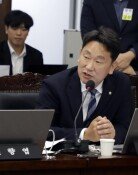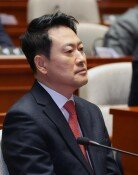373 Fund Managers Manage 96 Trillion Won
373 Fund Managers Manage 96 Trillion Won
Posted June. 13, 2007 03:03,
As low interest rates increases the liquidity in the market, the equity fund market is growing rapidly.
However, most Korean fund managers are in charge of several funds. Besides, the asset volume they manage, albeit smaller than those in advanced countries, is increasing rapidly. Therefore, some express their concern that fund managers may not properly respond to the rapidly changing stock market.
Increasing assets under fund managers-
According to the Asset Management Association of Korea, a total of 96.823 trillion won in assets were managed in the equity market as of the end of this May. Among them, 55.315 trillion won is in the pure equity market, and 41.508 trillion won is managed under mixed funds. The amount is more than double compared to 46.975 trillion won in late 2003. As of May, there were 890 equity funds and 3,063 mixed funds.
In the meantime, however, the number of fund managers only increased by 35% from 276 in 2003 to 373 this May.
The Investment Company Institutes World Fund Report 2006 said among 42 countries, Korea was ranked 14th in terms of fund assets and 3rd in the number of funds after America and France.
In Korea, one fund manager is in charge of an average of 10.6 funds (including mixed funds), so many of them feel a heavy burden.
According to our survey of 75 fund managers from Koreas top 10 asset management companies, 69 of them (92%) said that less than five was the ideal number of funds they could manage.
In reality, however, 40 respondents (53%) were managing 5 to 10 funds, and 12 (16%) were managing more than 10 funds.
If managers are in charge of many funds, they focus on maintaining rather than managing the fund, said director Heo Nam-gwon of Shinyoung Investment Management.
The United States is known to have the most advanced fund market in the world. While its amount of fund assets is huge, the number of funds managed by a fund manager is small.
At the Franklin Group, about 40 fund managers and investment experts are managing $100.4 billion in assets over 100 funds. Compared to Korea, we have more asset managers, said an insider at Franklin Templeton, a U.S. asset manager.
Fidelity, a global asset management company, has 900 investment experts and they manage $280.7 billion.
Increasing fund assets can cause poor management-
As companies provide various kinds of funds but have small number of managers, problems emerge. For example, a fund manager has to manage various stocks that require different methods like value, dividend, growth, and technology stocks. Other companies manage assets with teams.
In fact, among 50 Korea asset management companies, only 10 have more than 10 fund managers. As many as 18 of them have less than 6 fund managers.
Value stocks and technology stocks need different management methods, so team management may have less expertise, and no one will bear responsibility for the results, said one expert in the field.
When I have several lectures scheduled, sometimes I have no time to study the companies or management skills, said a 44-year-old fund manager.
Some point out that fund managers should not be evaluated by 3-month or 6-month returns.
According to Zeroin, a fund rating company, an average working period of fund managers in 45 companies was 2.6 years in 2005 and 2006. The turnover rate during the same period was 51.9%.
As the performance of fund managers are evaluated by short term returns, they mostly have short careers. Fund managers with less experience cannot respond well to urgent situations like a bear market, said asset management vice president Kim Hae-dong of SH Asset Management.
larosa@donga.com aryssong@donga.com







